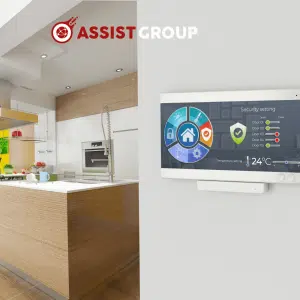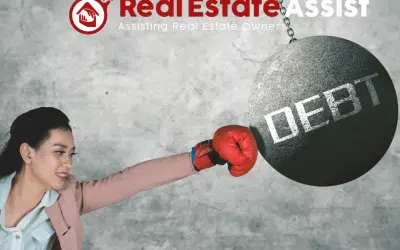The Definitive List of What Every Homeowner Needs to Know
https://assistgroup.co.za/real-estate-owners/the-complete-homeowner-guide/
It’s time to prepare for homeownership! Before you embark on this new phase of your life, it is important that you know how to purchase a home and maintain it. Homeownership can be a rewarding experience but also a challenging one if property owners are not prepared from the start. In this blog post, we will discuss what every real estate owner needs to know in order to make their lives easier when they become homeowners for the first time or move into their next home.

Avoiding the pitfalls of homeownership
The homeowner’s guide starts with understanding the pitfalls of homeownership. Many people experience problems when they buy a home for the first time or move into their next place which can be difficult if property owners are not prepared beforehand. When real estate owners make certain mistakes, it costs them in terms of money and stress levels – both things that are important to avoid in the homeowner experience. Some of these pitfalls include:
- Failing to Read Your Homeowner’s Insurance Policy Carefully Before Signing On The Dotted Line!
- Failing to budget for property ownership costs.
- Taking on too much debt with their mortgage loan
- Making renovations that are not worth it or that they cannot afford by borrowing more than what they can payback
- Not understanding homeowner insurance
We will explore these pitfalls in detail so that you can avoid them when the time comes for homeownership.
Protecting yourself during home renovations
If homeowners are planning to renovate their next place or have recently moved into a new home, they need to know how homeowner insurance works and what it covers. Renovations can be an exciting experience but homeowners also need to make sure they do not overspend on renovations or neglect homeowner insurance, which covers any damage that may occur from the renovation process.
Before a property owner begins their next set of renovations in a new home, it is important for them to know what homeowner insurance does and does not cover since most property owners cannot afford major repairs if something were to happen during the renovation process without the real estate owner’s protection. Even though some people believe homeowner’s insurance only protects against fires and floods, there are many things that property owners should know about how this policy works before making necessary changes in their homes – especially when it comes time for buying renter’s contents coverage.
Real Estate owner Insurance Costs
Before property owners begin Real Estate owner insurance, they need to research how homeowner insurance works and what it covers. They also need to know that homeowner’s insurance rates vary from state to state as well as city-to-city depending on certain factors like crime rates, which is why you should ask your agent for assistance when determining the cost of homeowner’s insurances in new areas where homeowners are moving into. Homeowners can also compare homeowner’s insurance quotes online; however, some homeowners may not be able to find affordable homeowner insurances until they have lived there for several years.
Maintaining & Making Repairs on Your Property
Once property owners move into their next place or recently finished renovations on an older home, owners need to make sure they are prepared for real estate owner costs. Some of these property expenses include making repairs on the property, such as replacing locks and faucets, or even hiring a contractor for bigger projects that real estate owners cannot do themselves.
Updating Your Locks & Fixtures
Homeowners may need to update their locks if someone has stolen keys from them which is something many people prefer not having to happen to them again in the future – especially because you never know who picked up your key without permission or when it will be used by an intruder. Homeowners should also consider changing out old fixtures with new ones whenever possible since this means updating security features as well as upgrading utilities like electricity so homeowners can save money on energy bills down the road.
Repairing Your Property
Homeowners need to make sure they are prepared for homeowner costs. Some of these homeowner expenses include making repairs on the property, replacing locks and faucets, or even hiring a contractor for bigger projects that homeowners cannot do themselves. If you have an older home with appliances that are not efficient, then you will want to consider upgrading your appliance systems so it is easier to control homeowner bills in the future. Many homeowners may choose larger upgrades like adding solar panels instead since this can lower their energy bill significantly without having them spend too much money upfront by using low-interest loans . Whatever route homeowners decide to take when updating homeowner’s insurances, just remember it is better than being caught off guard if something happens unexpectedly at your property.
Homeowner Association
A homeowners association, or HOA, is a legal entity that manages the residential community in which its members live. The terms of the association are laid out in an official document called covenants, conditions, and restrictions (CC&Rs). These documents can be enforced by law if necessary. While these associations have existed since the 1920s, they have become increasingly popular in recent years.
Homeowners associations are great for people who want to work together with others in their neighborhood. They provide benefits that would be difficult or impossible to get on your own, such as community pools and playgrounds.
They also have social events where you can meet other homeowners nearby, which is especially fun if you don’t know anyone else nearby! This helps prevent loneliness after moving into a new place where everyone knows each other but you do not yet know them- it’s nice being able to join right in the conversation when they talk about local things like the park down the street. These groups usually offer classes like yoga and gardening too! It isn’t just about activities either; there are rules related to keeping up property values (and protecting your investment).
Cities often require homeowners to be part of an association before they can build any house on their property. This helps ensure that all new homes are up to code, and it also encourages people who want this type of security for themselves (and the community) to join. Getting into one is usually pretty easy – you just have your neighbors vote if they think you should or not! It’s always good practice though- even if you don’t go through with joining these groups, knowing what happens when something goes wrong will help prevent future complications in case anything does happen. Of course, there are some negatives too… but remember: every group has its downsides so take both sides into consideration before a decision about whether or not joining is right for you.
Pro’s and Con’s of HOA’s
Joining a homeowners association can make property management easier and more efficient.
However, the cost of joining an HOA is often high and may affect people who cannot afford it.
The rules and regulations in homeowner associations may also be complicated. It’s important to know what you are getting into before signing up for an HOA membership.
Joining a homeowners association might not always be right for everyone due to its costs or restrictions on individual freedom.
Home Security Tips
We may not always think about it but our home is a valuable asset. It’s often more expensive than the cars we drive and sometimes have to be mortgaged for several years in order to buy one. So why wouldn’t you give your home all of the security that you can afford? If there were a fire or a break-in, would everything inside be lost? Homeowners’ insurance won’t cover those things so this is where having some additional protection comes into play. Here are five easy tips for keeping your Home safe:
Home safety tip #01 – Get yourself an Alarm System
Don’t just go with any alarm system either as these systems tend to carry high monthly costs which could easily make up for the cost of your security. Look into alarm systems that are made for real estate owners and not businesses as they tend to be more affordable, don’t charge any monthly fees, and come equipped with everything you need.
Home safety tip #02 – Get yourself a Dog
If you can afford it, get yourself a dog! A big barking dog will likely scare away burglars or intruders right off the bat before anything bad even happens. If having an actual guard dog isn’t an option look into buying one of those fake ones instead which actually works just as well in some instances because most people think there is another person around when they hear loud barking coming from inside your home instantly scares them off. You could also consider getting yourself one of those electronic pet doors which only allows your pets to go in and out.
Home safety tip #03 – Get some Motion Sensors around the exterior of your Home
Getting some motion sensors that are installed on windows or doorways will give you an extra layer of protection while also being very affordable at the same time. This way if someone tries to break into your home, they will trip these alarms instantly giving away their presence inside while sending a loud alarm throughout your house so everyone is aware something isn’t right. You may even want to consider getting surveillance cameras placed outside as well for added security!
Home safety tip #04 – Keep Your Windows Locked at all times
When it comes down to burglaries, most thieves do not spend a lot of time trying to pick locks or break windows. They’re more likely going to try and open the door if it’s unlocked, enter through an already broken window, or simply smash one in order to get inside. So make sure you keep all windows locked at all times when they aren’t being used!
Home safety tip #05 – Get yourself a Safe for your Valuables
If there is anything valuable that isn’t kept with you on a regular basis such as jewelry, cash, expensive handbags, etc., then consider getting some sort of safe installed within your home which will allow these items to be hidden from plain view while also keeping them protected from burglars too. There are even ones out today that can be programmed by your smartphone so you can access them anywhere in the world. This is definitely a useful option for those who like to travel or go on vacation!
Now that we’ve covered our top five tips for keeping your Home safe, hopefully, everyone will start taking some action and put these things into place before something serious happens to their most valuable asset! These are easy solutions that don’t require much work either but could make all of the difference when it comes down to protecting everything inside!
Some Energy Saving Tips for your Home
The average family spends about R20000 per year on energy costs, which means that you can save more than R1000 by simply making your home more efficient.
-There are some easy steps you can take to improve the efficiency of your insulation and appliances in order to cut down on those heating bills during winter months or cooling bills during summer months.
-You should start with insulating all windows using plastic film kits available at most hardware stores. The kit is relatively cheap while it will keep out drafts resulting in warmer rooms where heat escapes through windows easily. Then focus on sealing any leaks around doors and baseboards before installing weather stripping along with thresholds into homes that have problems with air infiltration especially when dealing with older homes built without proper attention
to insulation.
Adjust the temperature on your water heater, which will ensure that you are not wasting energy heating up more water than necessary when taking showers or doing laundry for example. Make sure to insulate any hot water pipes in order to keep heat inside where it belongs and turn down the thermostat setting on your furnace during winter months while keeping an eye out for drafts near doors, windows, and baseboards as well since this is a common source of heat loss due to poor insulation. You should also consider installing storm doors if you have a single-pane glass door because they come with low-E coatings that help retain warm air in colder climates making them worth their cost especially if combined with weather stripping around thresholds.
You should also consider switching out your old appliances with energy star products that consume far less electricity when running. You can install a programmable thermostat in order to control heating and cooling costs during different hours of the day while sealing any leaks around baseboards will save you more money as well since it is one of those things often overlooked by property owners until they notice their heating bills have gone down considerably after all air infiltration points have been sealed properly.
Conclusion:
If you’re looking for a new home or if you have been experiencing some financial hardship, Real Estate Assist in South Africa is here to help. We provide homeowner solutions and debt relief, and debt consolidation as well as foreclosure prevention services in South Africa, Cape Town, Johannesburg, Durban, Pretoria and the rest of the country that are tailored to your needs. Contact us today so we can find a solution that works best for you!



